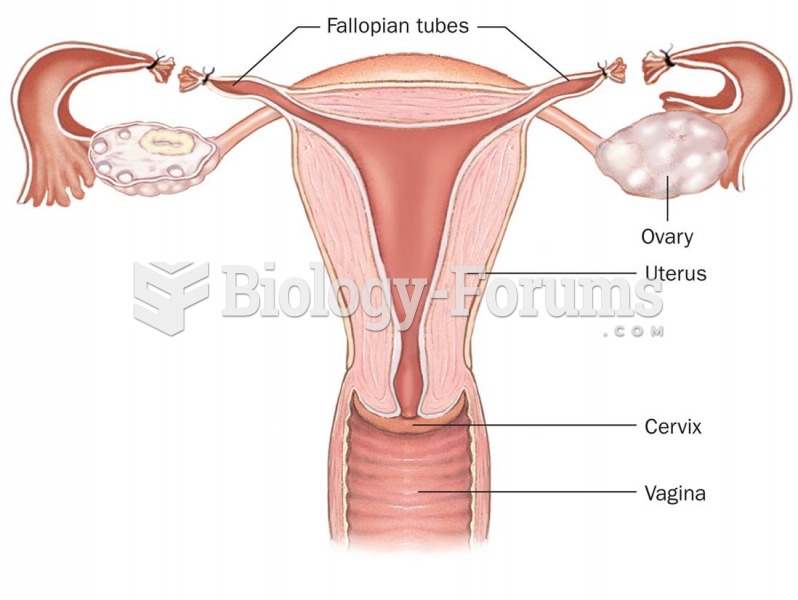|
|
|
In most cases, kidneys can recover from almost complete loss of function, such as in acute kidney (renal) failure.
In women, pharmacodynamic differences include increased sensitivity to (and increased effectiveness of) beta-blockers, opioids, selective serotonin reuptake inhibitors, and typical antipsychotics.
Signs of depression include feeling sad most of the time for 2 weeks or longer; loss of interest in things normally enjoyed; lack of energy; sleep and appetite disturbances; weight changes; feelings of hopelessness, helplessness, or worthlessness; an inability to make decisions; and thoughts of death and suicide.
Asthma cases in Americans are about 75% higher today than they were in 1980.
There are 20 feet of blood vessels in each square inch of human skin.
 Immunization with a vaccine. A healthcare professional is injecting a vaccine into the patient’s arm
Immunization with a vaccine. A healthcare professional is injecting a vaccine into the patient’s arm
 Older participants remember more information than younger participants when material has emotional ...
Older participants remember more information than younger participants when material has emotional ...





